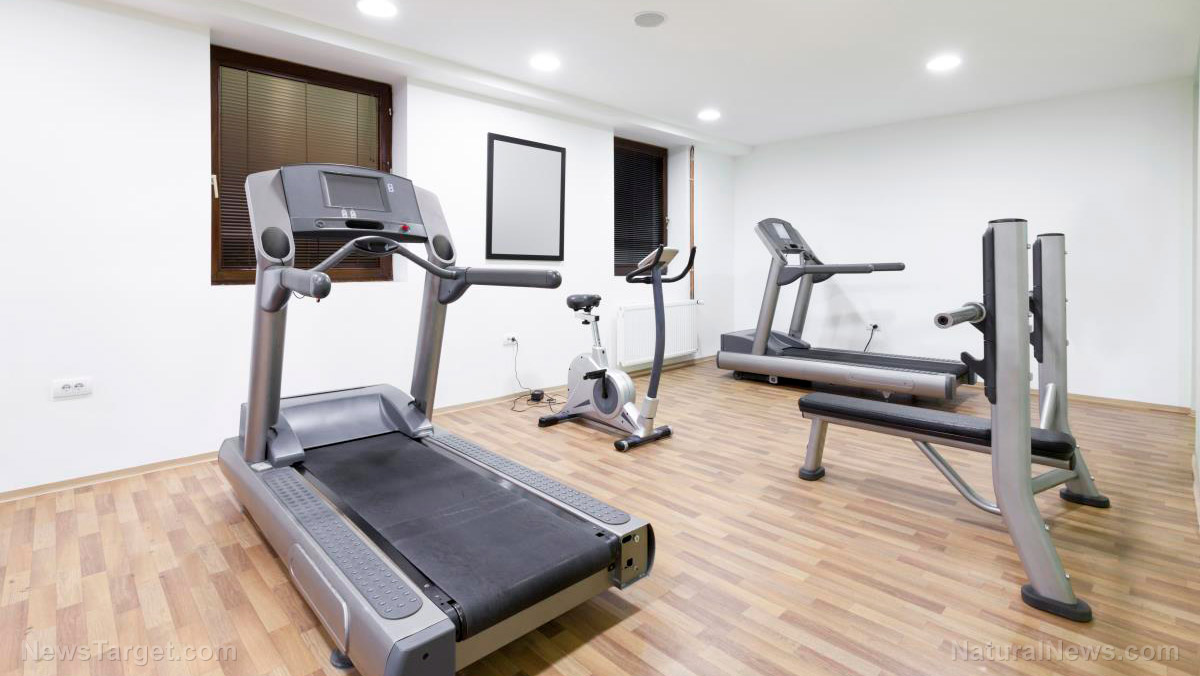No more excuses: Even short bursts of exercise offer many health benefits, researchers advise
05/25/2020 / By Zoey Sky

Not everyone likes to exercise, but studies have proven time and again that regular physical activity is crucial for maintaining your overall health. If you hate going to the gym but want to keep fit, you may finally have a reason to rejoice.
According to updated federal physical activity guidelines, short bursts of exercise can also offer benefits for your well-being.
“Move more, sit less”
In November 2018, updated federal physical activity guidelines highlighted the importance of encouraging sedentary people to be more active, even if their exercise routine only lasted for several minutes.
Previous guidelines from a decade ago state that you need to work out for about 10 consecutive minutes to improve your well-being.
Dr. Katrina Piercy, a physical activity and nutrition advisor at the U.S. Department of Health and Human Services, explained that smaller increments of exercise will add up and offer important health benefits.
Piercy, who belonged to the team that wrote the new guidelines, added that the biggest benefits may come from an inactive person who starts exercising more, even if it’s just walking to their office daily instead of using the elevator.
The important thing is to promote the practice of moving more and sitting less.
The revised guidelines have also set the standards higher for alleged “substantial” health benefits. Now, adults need around 150 to 300 minutes a week of moderate-level physical activity. Alternatively, you can take part in vigorous activities for 75 to 150 minutes a week.
You can enjoy additional benefits if you do muscle-strengthening activities at least twice a week. If you are busy at work, you don’t have to commit to planned and structured activities. (Related: Short duration, high-intensity resistance exercise training programs can dramatically improve insulin sensitivity in overweight men: Study.)
Dr. Mercedes Carnethon, an epidemiologist and vice chair of preventive medicine at Northwestern University, said that you don’t need to do intense workouts to get your heart rate pumping. Other options that you can do include the following:
- Dancing at home.
- Doing jumping jacks for five to 10 minutes.
- Doing leg exercises or jogging in place while watching TV.
- Playing with your kids at the park.
- Using an exercise bike or a treadmill at home.
- Walking more and using your car less.
According to the new guidelines, children aged three to five must be physically active throughout the day. This is a significant change from previous recommendations that said children aged six and older should stay active.
Those aged six to 17 need at least 60 minutes of moderate-to-vigorous exercise daily.
While the advice for older adults is the same as those for younger adults, there is one difference. Older adults are advised to try mixing balance training with aerobic activities and muscle-strengthening.
Piercy explained that taking part in multi-component exercises can help the elderly avoid falls and reduce the risk of injury if they fall. These activities can also help the elderly continue their normal routines and maintain independence.
The new guidelines also note that being physically active benefits your brain health. Exercise may help improve sleep quality and lower your risk of developing issues such as depression, anxiety and dementia.
Some studies have found that there is a link between exercise and improvements in brain health. Piercy notes that runners experience a phenomenon called “runner’s high,” which is caused by endorphins. Even if you’re not an experienced runner, you may experience these same benefits if you go on a short, brisk walk.
In recent years, physical activity levels in the U.S. have improved somewhat. But only about 20 percent of American adults get the recommended amount of physical activity.
Carnethon hopes that the new guidelines can help improve these numbers by encouraging people to be more physically active, whether by exercising for several minutes or going all-out and working up a sweat at the gym.
She concluded that physical activity should be treated like “personalized medicine.” There’s no clear-cut prescription for reaching 150 minutes weekly, so you can make changes to your routine to accommodate your schedule and personal interests. The important thing is to commit to exercising regularly and not to spend too much time sitting on your couch to improve your overall health.
Sources include:
Submit a correction >>
Tagged Under:
exercise, fitness, longevity, Men's Fitness, men's health, natural cures, natural treatment, obesity, overweight, physical activity, research, short duration, slender, weight loss, weight management, Women's Fitness, women's health, workout
This article may contain statements that reflect the opinion of the author
RECENT NEWS & ARTICLES
COPYRIGHT © 2017 WOMENS FITNESS FOCUS




















